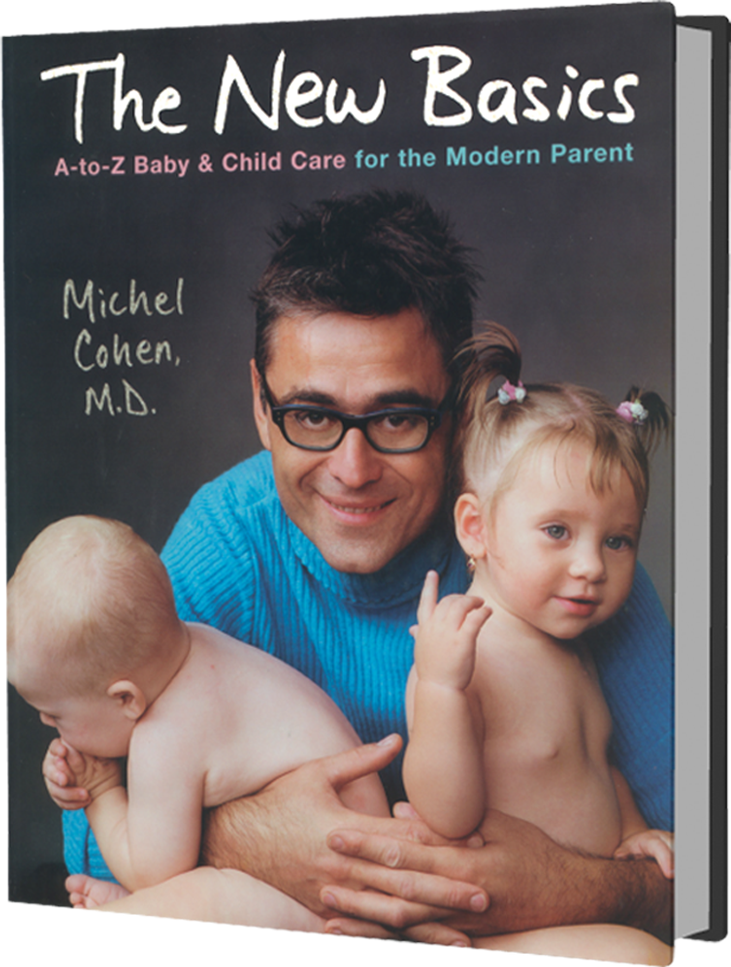
Burping
Contrary to popular belief, a baby’s burp, though reassuring, is not all that important. Burping happens when the stomach releases air that was swallowed while feeding or crying. Newborns don’t often burp, since they eat slowly and sleep most of the day, allowing little chance for air to enter the stomach. Bottlefed babies tend to ingest more air, because artificial nipples aren’t as easy to seal a little mouth around. Therefore, as a good rule of thumb, if there’s no air, there’s no burp. So don’t go pounding on Lucy’s back for hours in search of audible results. And if she drifts off after a meal, you might as well let her sleep; even if you don’t tap, the air will still make its way up, if less dramatically.
The recommended procedure for burping is simple and gentle. After feeding, just hold Lucy upright against your chest and rub her back or tap it softly. You don’t need to wake up at night to burp her if she feeds while you’re sleeping, since feeding at night is slow, and little air is ingested.
The de-emphasizing of the burp is a fairly recent development. In earlier years, pediatricians believed—and parents feared—that babies might choke if they missed out on this climactic event. They even thought such negligence could lead to SIDS. Much of the anxiety had to do with feeding habits. Earlier generations of parents were typically instructed to feed set amounts (of formula, if possible) at rigid intervals, but the prescribed amounts exceeded most babies’ ideal intake. Major vomiting sometimes ensued, putting babies at risk for milk inhalation and causing parents to fear that their babies might choke. This fear only served to reinforce the burping myth.
Nowadays, we recognize that babies should be fed on demand. Since Lucy regulates how much she eats, you needn’t be vigilant about burping and vomiting. And if she does spit up a little milk while sleeping, it won’t lead to choking.
It’s also worth putting to rest the myth that failure to burp a baby encourages colicky behavior [See: Colic]. This stems from a faulty, if understandable observation: Parents notice that a burp can stop a crying episode, but they don’t notice that the silence is just a lull in the storm and that the crying usually resumes with added gusto. In fact, constant back patting or bouncing can become annoying and agitate Lucy.




 MEDICATION DOSAGE
MEDICATION DOSAGE

